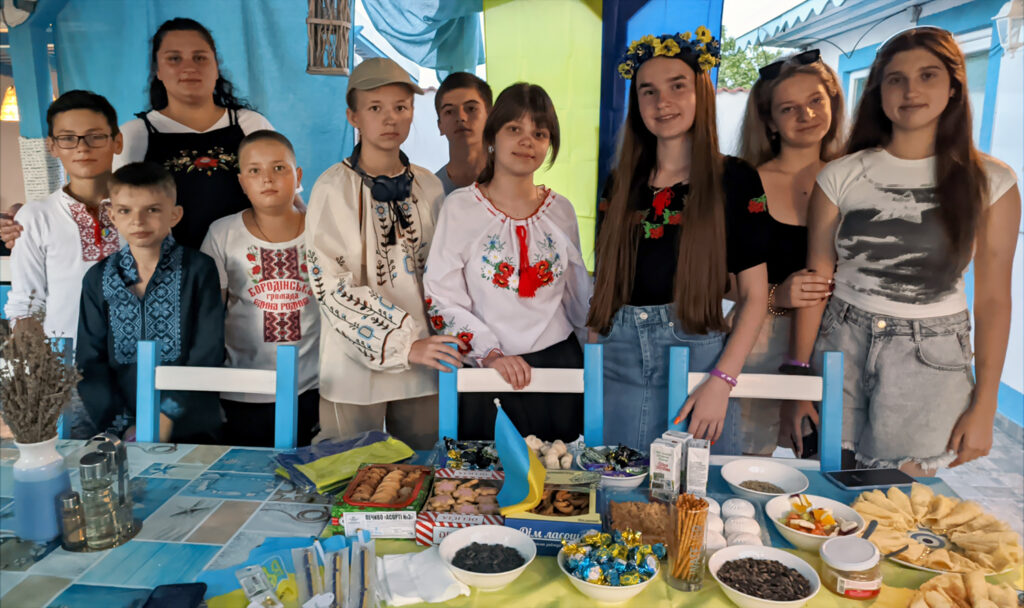At the beginning of July 2024, the Danube Delta Rewilders Camp, organized by Rewilding Ukraine and Rewilding Romania, welcomed 30 enthusiastic secondary school children from the local communities of the delta. The camp took place in Jurilovca, a charming village on the Romanian side of the delta.
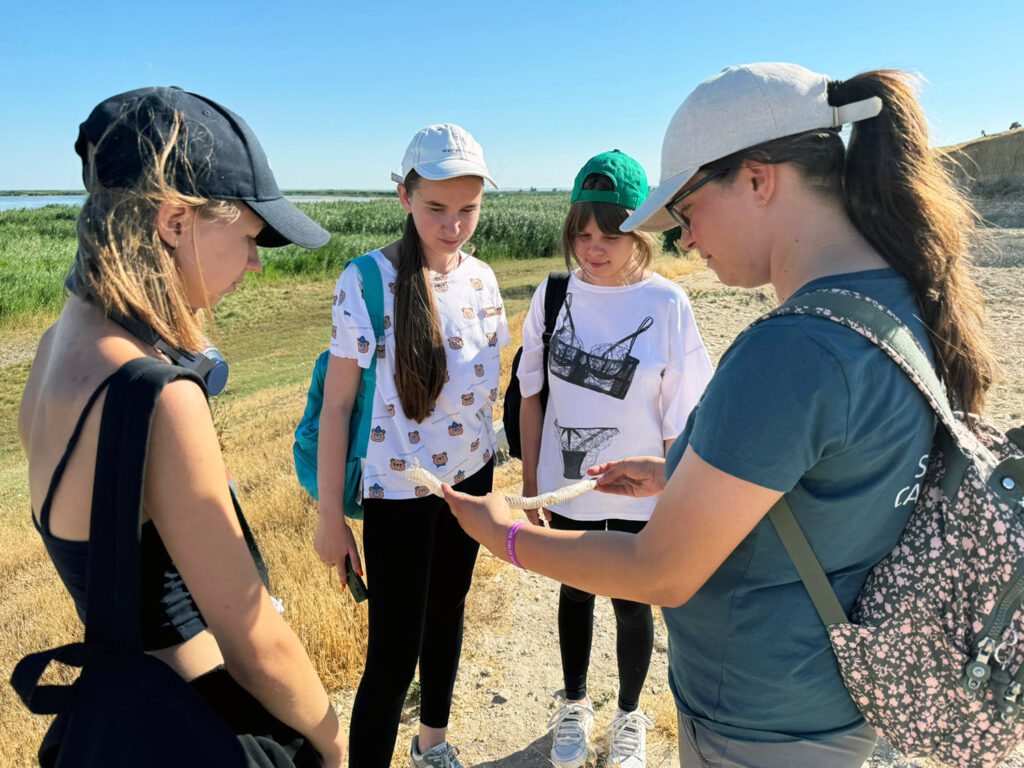
The aim of the camp was to reconnect kids with nature and immerse them in rewilding philosophy and actions. The camp united kids from three countries that share the unique Danube Delta, with groups from the Vylkove and Borodino communities of Ukraine, Slobozia Mare of the Republic of Moldova, and Jurilovca of Romania. Educators from each country accompanied the groups of children to gain knowledge and inspiration for future educational activities.
Throughout the camp, the young explorers learned about the natural processes, keystone species of the Danube Delta, the critical importance of healthy wetlands and steppes, and how rewilding can help both nature and the people of the delta thrive. The camp’s activities also focused on practical rewilding actions, allowing participants to take hands-on steps toward restoring nature.
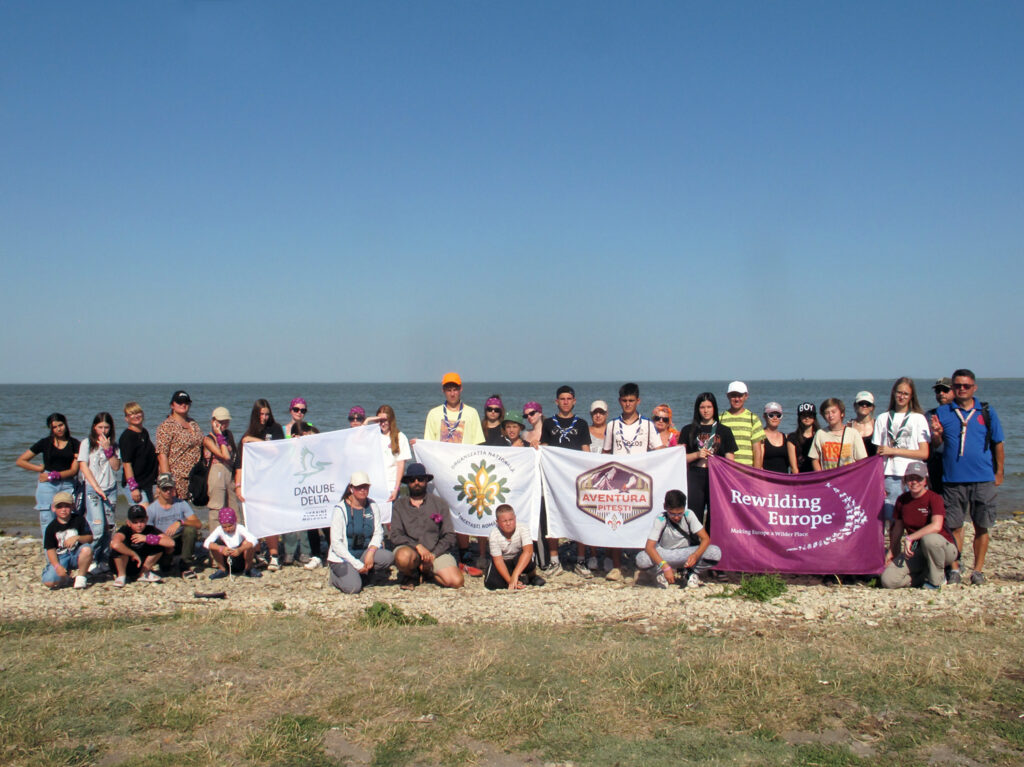
Preparing future rewilders
The program of the camp was quite diverse and balanced. The interactive information sessions not only equipped the kids with theoretical knowledge but also enhanced their soft skills, such as presentation, teamwork, critical thinking, and more.
“And for sure it’s not possible to reconnect the kids with nature without exploring nature. So we went in the field every day for foot and boat excursions during which the kids were amazed to meet the abundant biodiversity of the delta, witness the work of natural processes, and learn firsthand from the conservation practitioners about rewilding approaches and methods,” says Ioana Petrencu, the Team leader of the Romanian Danube Delta at Rewilding Romania.
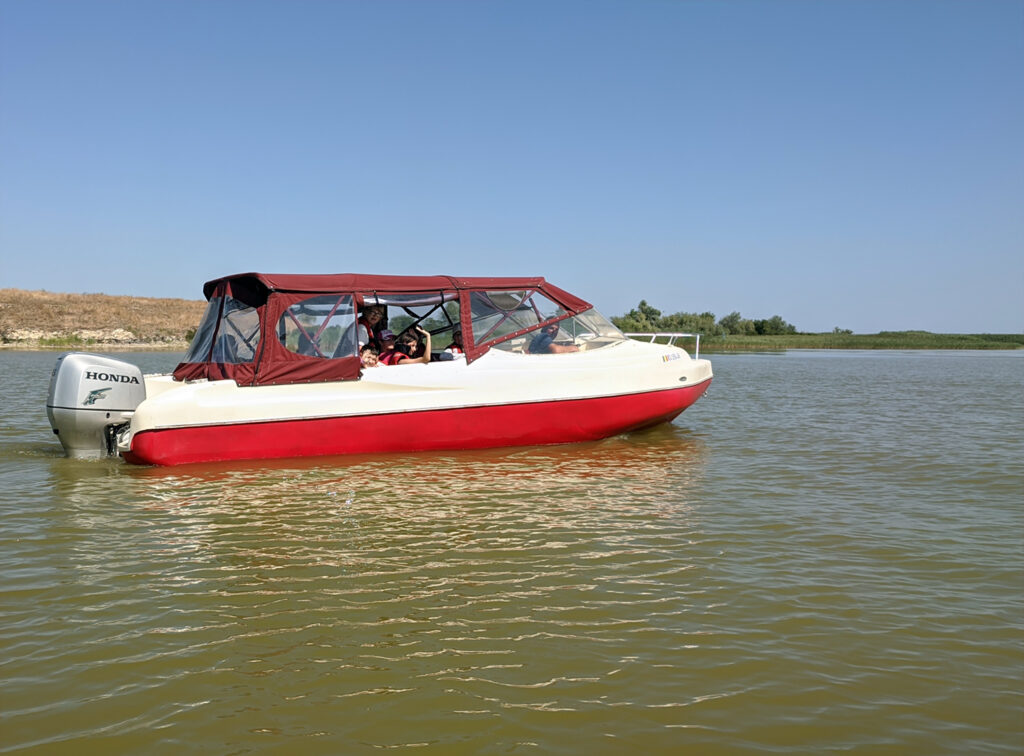
Participants also learned that a wild, healthy nature can be profitable and benefit local communities. The kids did a great job developing their own nature business plans. As the conclusion of the camp, the participants in small teams developed the rewilding programs for their areas, which they can start putting into practice when they return home. Ideas such as lake restoration, steppe and forest protection, awareness raising, and rewilding education were elaborated and presented to their fellow participants as theater plays.
Besides that, there was also a lot of fun, an exchange of traditions, outdoor experiences, and games provided by the camp trainers and the team of “Aventura Pitești Scouts”, which made the camp truly engaging and unforgettable.
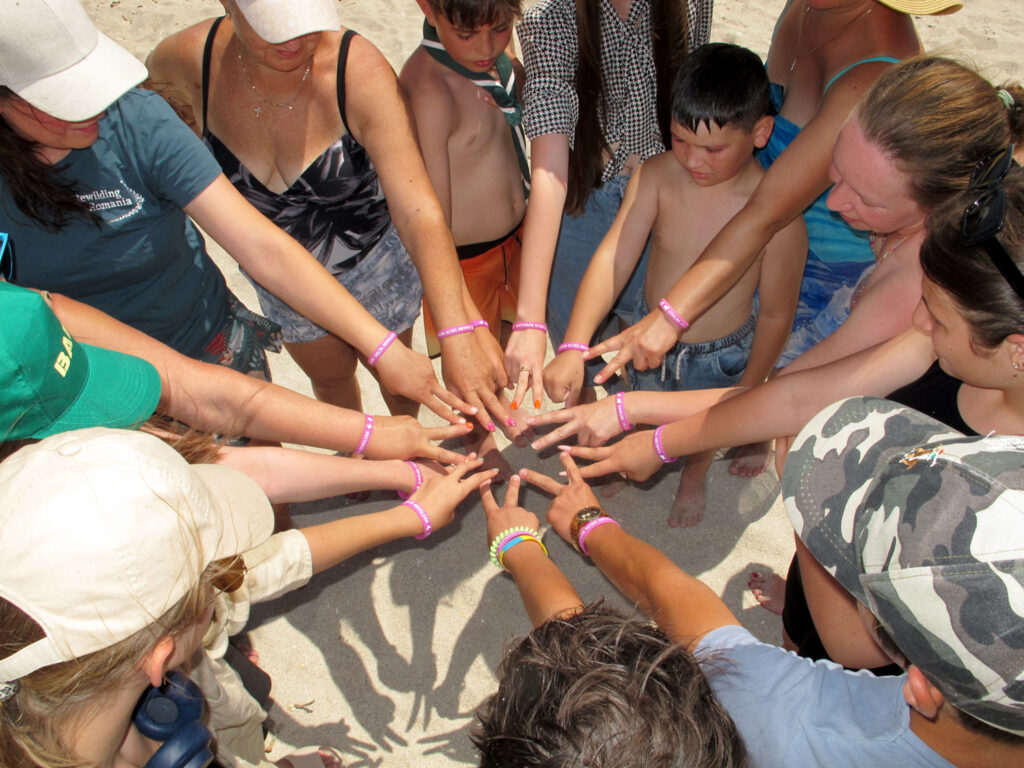
Picturesque Danube Delta
The camp was based in Jurilovca, a small Romanian village located on the coast of Lake Golovița in the lagoon area of the Danube Delta. In the rich wetlands, wildlife is thriving just around the village and the nearby Black Sea coast, and the water birds are easily seen from the coast and the boat.
“We visited Lakes Razim and Golovița by boat to discover water birds. We were lucky to see Dalmatian and Great white pelicans, Marsh harrier, and various heron species, and also observed a spoonbill colony from a distance,” shared Alexandru Ifrim, the Rewilding officer at Rewilding Romania. “We taught the kids the basics of birdwatching and the teams got the task to see as many birds in nature as they can. This contest-based approach engaged them very much in the activity.”
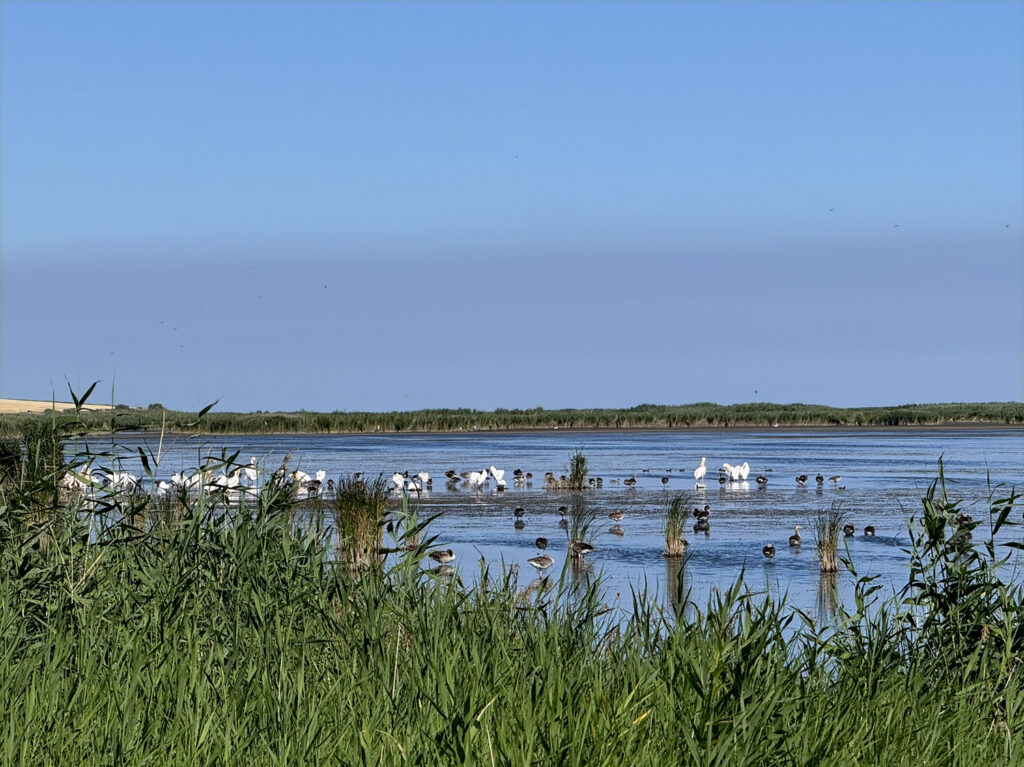
During the Rewilders Danube Delta camp, the kids also explored the picturesque Cape Dolosman, a stunning limestone promontory standing 29 meters high above the water and covered by unique steppe vegetation that includes rare species, such as Stipa pennata (feather grass), Astragalus dolichophyllus, Ephedra distachya (sea grape), Artemisia lerchiana (wormwood), Thymus zygioides (thyme), and more. They also visited the remnants of the ancient Greek town of Orgame/Argamum, first mentioned by Hecataeus of Miletus in the late sixth or early fifth century.
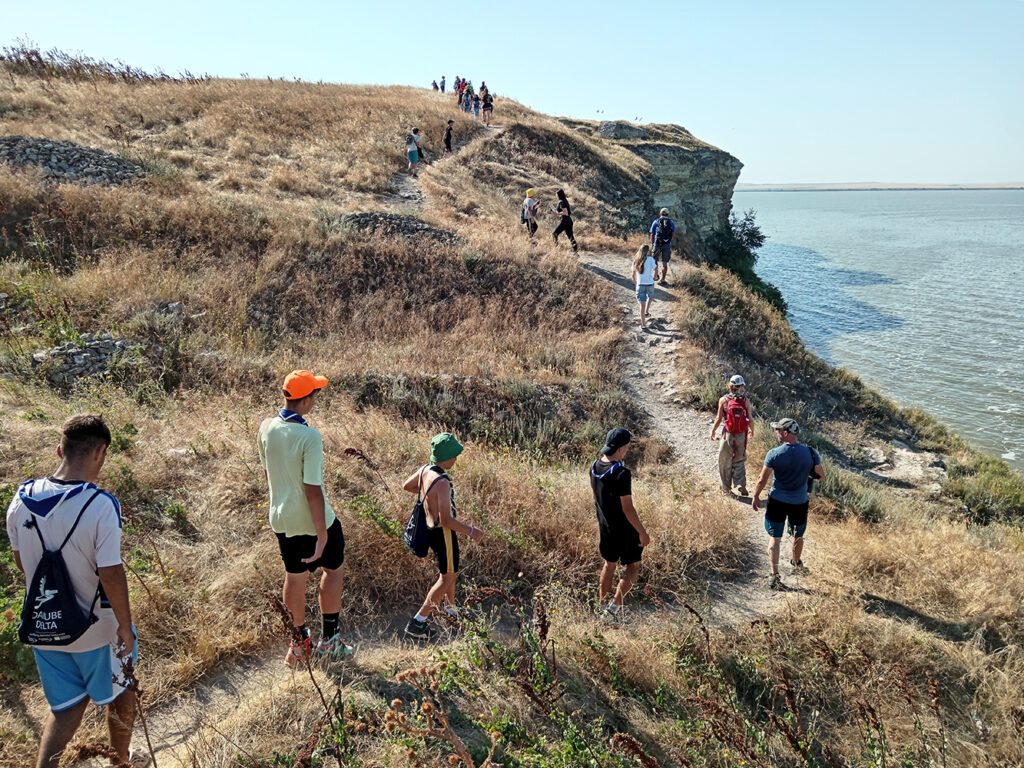
Gorgeous Dalmatian pelican
As an example of a keystone species of the delta, the participants discovered the Dalmatian pelican during a special session. The Dalmatian pelican is the ambassador of the healthy and well-connected wetlands in Europe. Sebastian Bugariu, an ornithologist from the Romanian Ornithological Society, presented the species’ biology and ecology and also the conservation measures taken to preserve and enhance the European population of the Dalmatian pelican, fulfilled in Romania, Bulgaria, Greece, and Ukraine within the Pelican Way of LIFE initiative, coordinated by Rewilding Europe and supported by the LIFE Programme and the Arcadia Fund. The participants also received some branded materials produced in the initiative.
Besides that, kids had the chance to meet this iconic species in nature during excursions. Many Dalmatian pelicans were feeding and roosting on the water bodies, in the Romanian part of the Delta but also on the Danube lakes in Ukraine, which the Ukrainian group passed on their way to the camp.
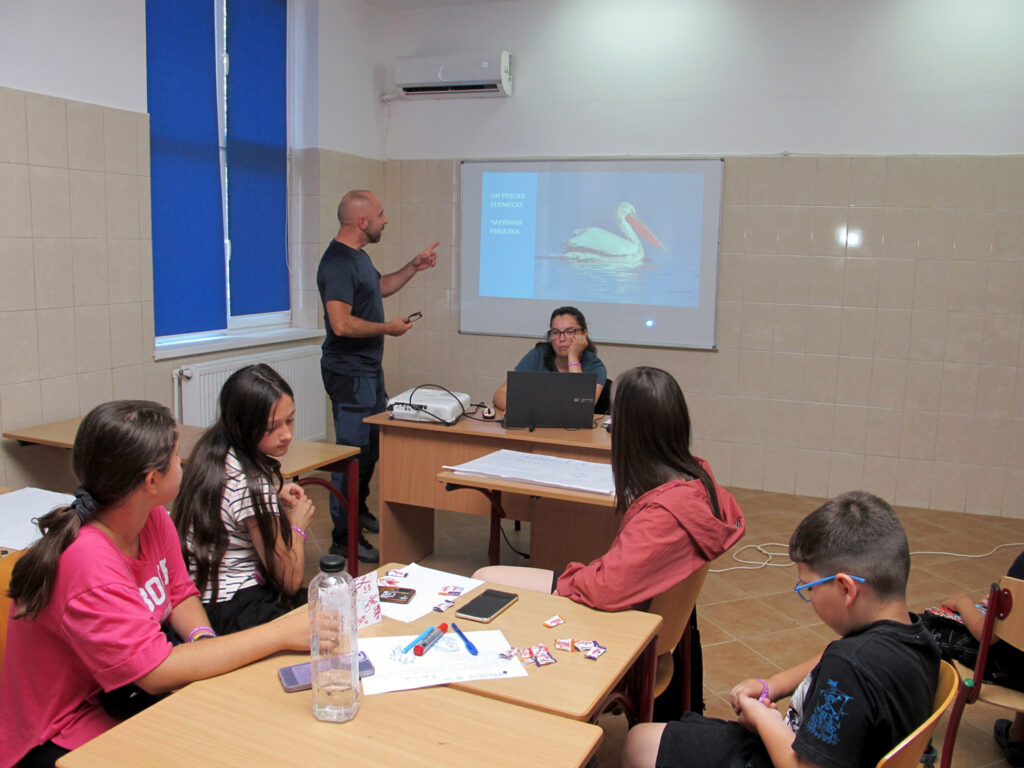
Bigger picture
The camp concluded the rewilding education program “Living Danube Delta”, which was previously held in the local schools of Ukraine, Romania, and the Republic of Moldova, located in the Danube Delta. After sessions in schools, the kids participated in the activities of the Rewilders Danube Delta Club, established in 2023.
“Educating local kids to live in harmony with nature is very important for the long-term preservation of the Danube Delta and other natural areas. When they grow up, they will save and restore only what they love. And through all these interesting and engaging activities, such as the club and camp, we are now planting positive seeds in their hearts and souls,” says Kateryna Kurakina, the coordinator of the camp and education activities from Rewilding Ukraine. “It’s very inspiring to see how the kids change through the camp and other activities, how their eyes light up, and how they truly embrace the idea of saving the nature of their area.”
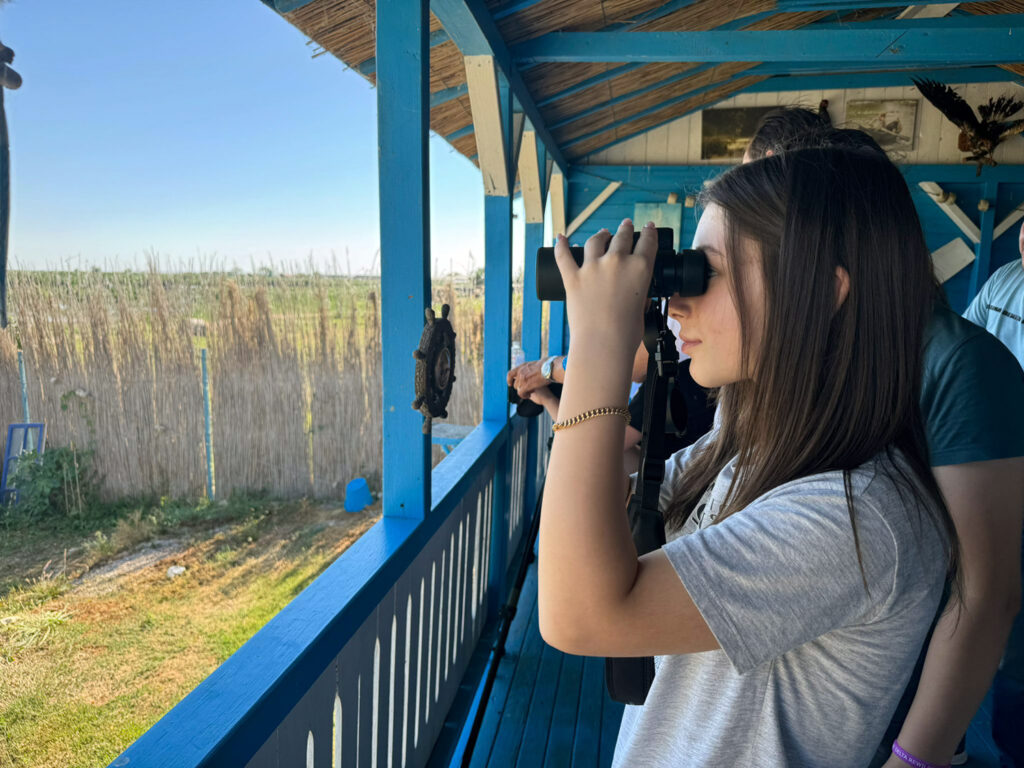
The education activities in the Danube Delta are carried out within the “Restoring the Danube Delta, Europe’s largest wetland” initiative, which is the delta’s largest transboundary restoration initiative to date. It aims to accelerate the recovery of natural landscapes, their ecological processes, and associated flora and fauna across at least 40,000 hectares of the Danube Delta Biosphere Reserve in Romania, Moldova, and Ukraine. It is coordinated by Rewilding Europe and implemented by Rewilding Ukraine, Rewilding Romania, and local partners with the financial support of The Endangered Landscapes & Seascapes Programme (ELSP).
The organizers of the camp sincerely thank the director and the staff of Jurilovca School for hosting the sessions, the tourist base “Sailors Guesthouse” for hosting the participants, the Danube Biosphere Reserve and the Danube Delta Biosphere Reserve Administration for supporting the camp, the Red Cross Tulcea volunteers for ensuring the safety of the kids, and donors for the financial support of the activities.
